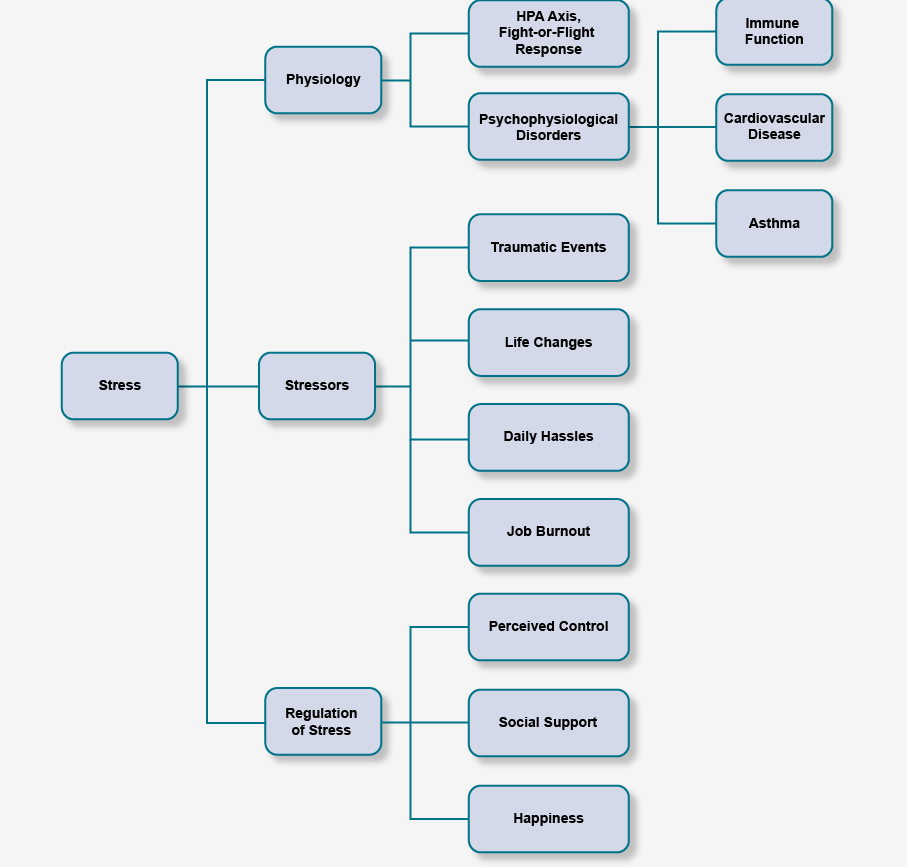Lesson 2
Coping with Stress
Introduction: Connecting Your Learning

Few would deny that today's college students are under a lot of pressure. In addition to many usual stresses and strains incidental to the college experience (e.g., exams, term papers, and the dreaded freshman 15), students today are faced with increased college tuitions, burdensome debt, and difficulty finding employment after graduation. A significant population of non-traditional college students may face additional stressors, such as raising children or holding down a full-time job while working toward a degree.
| Readings, Resources, and Assignments | |
|---|---|
| Required Readings |
Lesson 2 Modules 1-5 |
| Required Assignments |
Lesson 2 Essay |
| RioLibary |
Psychology Research Guide A one-stop shop for all of your psychology related research needs. |
This section describes the reading and assignment requirements for the lesson, as well as providing extra resources to aid your learning.
Focusing Your Learning
Course competencies covered in this lesson:
- Describe stress and its effects on behavior.
- Describe health psychology and factors to control stress.
- Describe how psychology is applied in real world situations.
Lesson Objectives
By the end of this lesson, you should be able to:
- Define stress as a process.
- Differentiate between good stress and bad stress.
- Describe how stress and emotional factors can lead to the development and exacerbation of cardiovascular disorders and asthma.
- Explain how social support is vital in health and longevity.
- Describe happiness, including it determinants.
Approaching the Objectives
This lesson examines stress and highlights our current understanding of the phenomenon, including its psychological and physiological natures, its causes and consequences, and the steps we can take to master stress rather than become its victim. The diagram below presents a visual guide of how these topics are related.

- Module 2.1: What is Stress?
- Module 2.2: Stressors
Assessing Your Learning
- Lesson 12 Essay (20 points)
- Submit the Lesson 12 Essay.
- Lesson 12 Quiz (10 points)
- Submit the Lesson 12 Quiz
Assessing Your Learning is where your coursework is submitted to your instructor.
Summarizing Your Learning
Stress is a process whereby an individual perceives and responds to events appraised as overwhelming or threatening to one's well-being. The scientific study of how stress and emotional factors impact health and well-being is called health psychology, a field devoted to studying the general impact of psychological factors on health. When stress and other emotional factors bring about or worsen physical diseases, these are called psychophysiological disorders.
Copyright © 2015 Rio Salado College. All Rights Reserved.